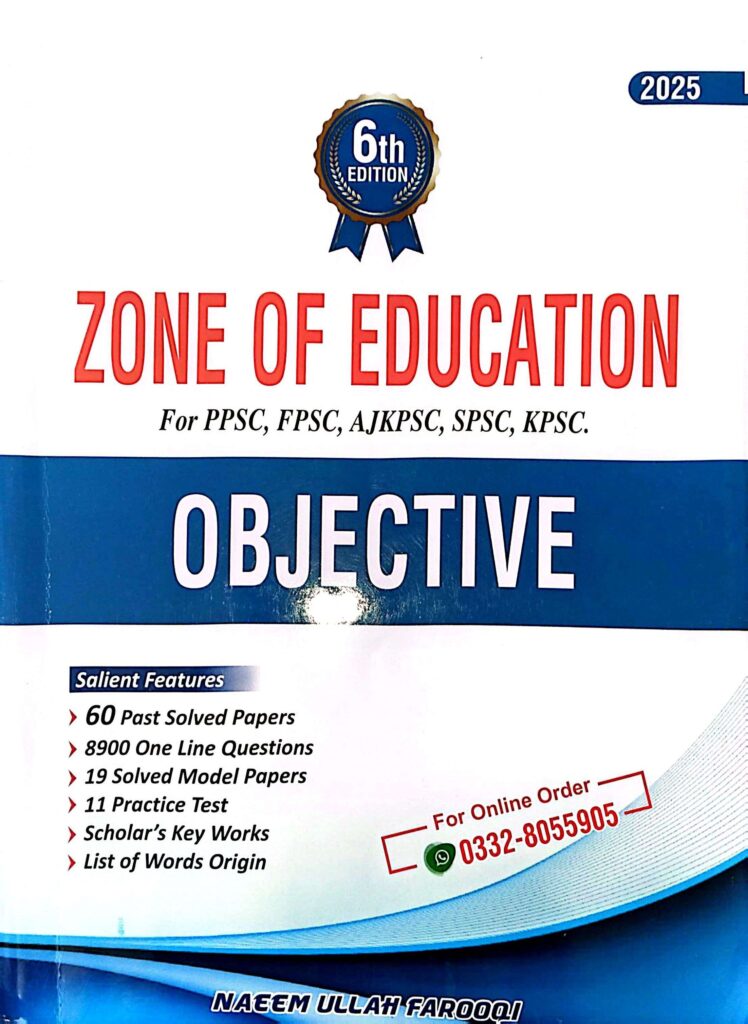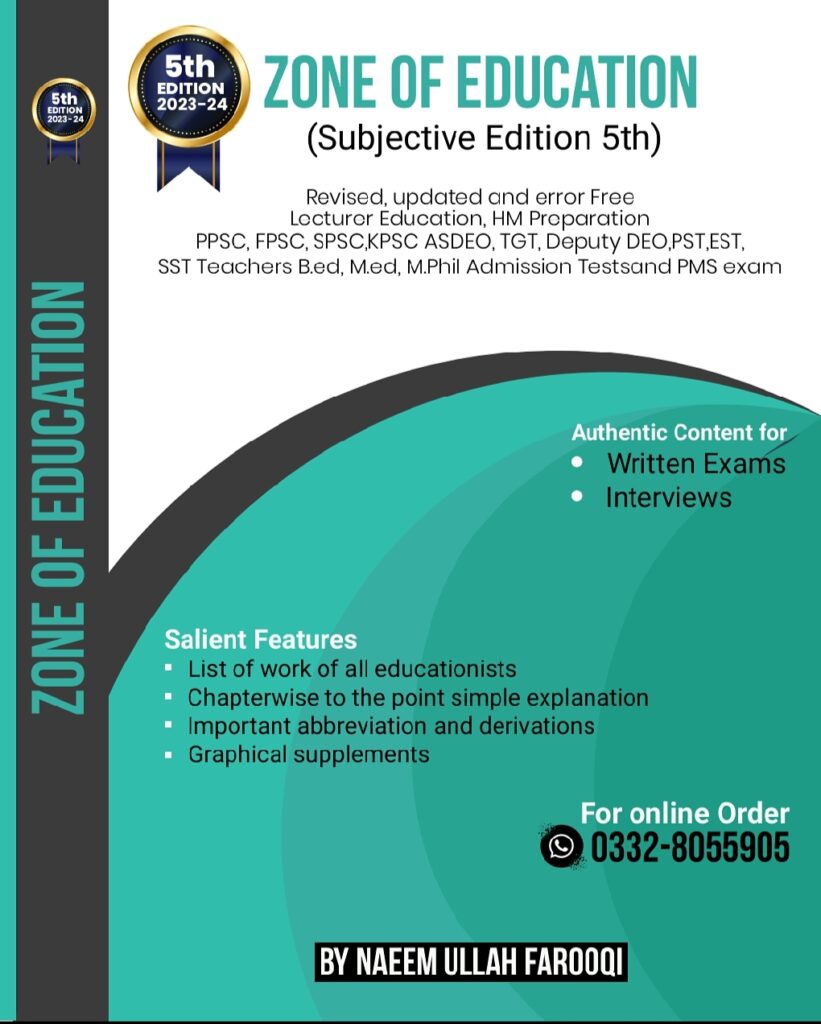Educational Planning & Management
The king pin in institutional planning is the –
A. teacher
B. principal
C. head
D. none of the above
Answer» A. teacher
discuss
35.
The main objectives of institutional planning is –
A. Improvement of Instruction
B. Optimum utilization of existing resources
C. Imparting realism and concreteness to educational planning
D. all the above
Answer» D. all the above
discuss
36.
The scope of institutional planning include –
A. Improvement of school plant
B. Improvement of instruction
C. Extra curricular activities for pupils
D. all the above
Answer» D. all the above
discuss
37.
Extra- Curricular Activities for Pupils include –
A. Social service projects
B. Work experience
C. athletics and literary activities
D. all the above
Answer» D. all the above
discuss
38.
Community programmes for the school include –
A. Literacy programmes
B. Adult education programmes
C. Youth service activities
D. all the above
Answer» D. all the above
discuss
39.
Sound Educational Planning has to be –
A. pragmatic
B. progressive
C. forward-looking
D. all the above
Answer» D. all the above
discuss
40.
Institutional planning results in improvement in motivation on the part of –
A. teachers
B. management
C. students
D. all the above
Answer» D. all the above
discuss
41.
Webster’s International Dictionary (1981) defines planning:
A. selects among alternatives, explores routes before travel begins and identifies possible or probable outcomes of action.
B. as an act or process of making or carrying out plans.
C. efficient and effective planning saves time, effort and money.
D. is a process utilized by an administrator while performing the role of a leader, decision-maker, change agent and so on.
Answer» B. as an act or process of making or carrying out plans.
discuss
42.
According to Hagman and Schwartz, planning is:
A. a good method of solving problems.
B. defining the present situation.
C. developing a set of actions.
D. planning selects among alternatives, explores routes before travel begins and identifies possible or probable outcomes of action.
Answer» D. planning selects among alternatives, explores routes before travel begins and identifies possible or probable outcomes of action.
discuss
43.
Educational planning is a process utilized by:
A. an administrator while performing the role of a leader, decision-maker, change agent and so on.
B. social and economic concerned with the welfare and progress of all citizens rather than the selfish goals of some special interest groups.
C. involvement of representatives of most of the concerned Sectors of the society in the process of planning.
D. based on the principle of maximum utility of resources available with school and the community.
Answer» A. an administrator while performing the role of a leader, decision-maker, change agent and so on.
discuss
44.
The Indian Commission 1964-66 opines that every educational institution can do much more through
A. a programme of development and improvement prepared by a particular institution
B. better planning and hard work to improve the quality of education within its existing resources
C. various alternative courses of action, evaluating these alternatives and choosing the most suitable alternative
D. changes made on adhoc piecemeal basis to solve immediate problems.
Answer» B. better planning and hard work to improve the quality of education within its existing resources
discuss
45.
Educational planning is necessary to
A. ensure the success of education
B. minimize backward children
C. broaden the outlook of students
D. have better relationship among teachers
Answer» A. ensure the success of education
discuss
46.
Institutional planning is based on the principles ___ utilization of the resources available in the school and community.
A. maximum
B. sufficient
C. optimum
D. none of the above
Answer» A. maximum
discuss (1)
47.
An Institutional planning is defined as “a programme of educational developmental improvement prepared by an educational institution on the basis of its felt needs”. Who gave this definition?
A. M.B. Buch
B. Harold Koontz
C. George Litwin
D. Robert Stringer
Answer» A. M.B. Buch
discuss
48.
Institutional involves the three main elements which are
A. pre-determined actions use of scarce funds and taking risks
B. pre-determined objectives, use of scarce resources and taking decisions
C. planning, evaluation and review
D. programme, actions and reviews
Answer» C. planning, evaluation and review
discuss
49.
Educational planning is a subsystem of a general planning for____ development.
A. human
B. social
C. economic
D. national
Answer» D. national
discuss
50.
Institutional planning can be of
A. long-term only
B. short-term only
C. short-term and long-term
D. none of the above
Answer» C. short-term and long-term
discuss
51.
Institutional planning is an effort to make____ use of available resources.
A. sufficient
B. minimum
C. adequate
D. optimum
Answer» D. optimum
discuss
52.
Institutional planning aims to
A. involve every teacher in the preparation of the plan
B. have better coordination between teachers
C. save time, money and materials
D. arouse curiosity of the students
Answer» A. involve every teacher in the preparation of the plan
discuss
53.
The basis of all programmes of quantitative and qualitative improvement in education is
A. educational planning
B. educational management
C. educational finance
D. managerial behaviour
Answer» A. educational planning
discuss
54.
Planning process means
A. plan to plan
B. goal to goal
C. programme of development
D. making process
Answer» C. programme of development
discuss
55.
Strategic planning is also known as
A. Short-term planning
B. Long-term planning
C. Short and Long-term planning
D. None of the above
Answer» B. Long-term planning
discuss
56.
This approach also known as ‘social planning’ or ‘planning for social development’ is
A. man power approach
B. social demand approach
C. rate of return approach
D. social justice approach
Answer» D. social justice approach
discuss
57.
In which year was the International Conference on educational planning held at Paris?
A. 1968
B. 1967
C. 1958
D. 1966
Answer» A. 1968
discuss
58.
Educational Planning in India has failed to adopt___ approach as there is fast increasing unemployment in every field of man power production in education.
A. social justice
B. rate of return
C. man power
D. social demand
Answer» C. man power
discuss
59.
The concept of planning in India dates back to____ when Indian National Congress appointed National Planning Committee.
A. 1937
B. 1947
C. 1938
D. none of the above
Answer» C. 1938
discuss
60.
Planning in education is an extremely important activity as it forms the basis of all programmes of____ improvement in education.
A. quantitative
B. qualitative
C. quantiatative and qualitative
D. none of the above
Answer» C. quantiatative and qualitative
discuss
61.
Educational Planning is necessary to ensure
A. success of the enterprise
B. efficient and effective planning saves time, effort and money
C. good method of solving problems
D. all of the above
Answer» D. all of the above
discuss
62.
Planning is involved in
A. establishing a goal or a set of goals
B. defining the present situation
C. determining aids and barriers
D. all of the above
Answer» D. all of the above
discuss
63.
One of the characteristics of Institutional Planning
A. Co-operative
B. Man-power
C. Educational development
D. Progress
Answer» A. Co-operative
discuss
64.
Institutional planning is based on
A. modern educational planning
B. defining the present situation
C. developing a set of actions
D. community set up
Answer» D. community set up
discuss
65.
Institutional planning on one hand stresses on____ of human and material resources and on the other hand also pays accent on augmenting human efforts.
A. need based
B. specificity
C. goal oriented
D. optimum utilisation
Answer» D. optimum utilisation
discuss
66.
Institutional planning is a means of
A. accomplishing widespread targets of education
B. planning activity must be stimulated in some way at some level
C. planning was considered regimentation and standardisation suitable only for authoritarian state
D. determining aids and barriers
Answer» A. accomplishing widespread targets of education
discuss
67.
Institutional planning lays stress on both
A. national and state policies
B. improvement and development
C. curriculum and co-curricular
D. qualitative and quantitative
Answer» B. improvement and development
discuss
JOIN ZONE OF EDUCATIONPK!
Discover the most comprehensive and reliable pedagogy resources in Pakistan, curated for competitive exam success. Our content covers all competitive exam MCQs, including PPSC, FPSC, AJKPSC, SPSC, and more. Designed to empower learners with top-notch material and insights, trust us for your preparation journey!


